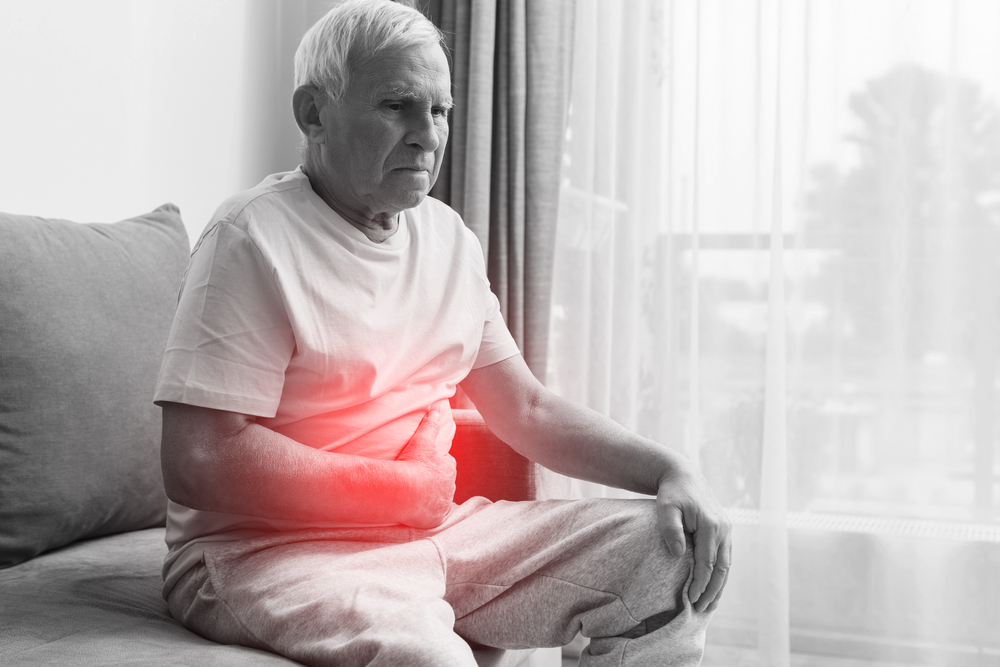Losing weight is hard enough—but if you have Hashimoto’s, it can feel nearly impossible. You know what you should be doing—cutting calories, moving your body, sleeping more—yet the results don’t show. What’s going on?
The truth is, weight loss with Hashimoto’s is a completely different game. At its root, Hashimoto’s is both a hormone and autoimmune disease, and these factors play a significant role in weight loss. To achieve lasting weight loss, you need to understand your body, your thyroid, and what’s really going on beneath the surface.
What Is Hashimoto’s—and How Is It Different from Other Thyroid Conditions?
Hashimoto’s thyroiditis is an autoimmune condition where your immune system mistakenly attacks your thyroid gland. Over time, this attack damages the gland’s ability to produce thyroid hormones—hormones that are essential for metabolism, energy regulation, and cellular function.
Unlike other forms of hypothyroidism (which might simply result from iodine deficiency or medication side effects), Hashimoto’s involves chronic inflammation and immune system dysregulation. That makes it more unpredictable and more complex to treat. In fact, many patients with Hashimoto’s still struggle with symptoms even when their labs appear “normal.”
How Hashimoto’s Affects Weight Loss
The thyroid plays a central role in metabolism. When thyroid hormone levels drop—even slightly—your metabolic rate slows down, making it harder to burn calories efficiently. This can lead to:
Weight gain or inability to lose weight
One of the most frustrating symptoms of Hashimoto’s is the persistent weight gain—or the inability to lose weight despite healthy habits. This occurs because thyroid hormones like T3 and T4 are key regulators of your metabolic rate. When levels are low, your body burns fewer calories at rest, and it can shift into a state of conservation, making it more prone to storing fat. Even with regular exercise and a clean diet, the metabolic slowdown caused by Hashimoto’s makes fat loss much more difficult than it would be for someone with normal thyroid function.
Fatigue and low motivation for exercise
Hashimoto’s-related fatigue goes beyond feeling “a little tired.” It’s a deep, unrelenting exhaustion that doesn’t resolve with rest and can make daily activities—let alone structured workouts—feel overwhelming. This low energy is often tied to both reduced thyroid hormone levels and mitochondrial dysfunction, where your cells struggle to produce the energy they need. As a result, people may find themselves too drained to exercise regularly, further compounding weight issues and weakening muscle tone over time.
Constipation and fluid retention
Sluggish thyroid function slows down many bodily processes, including digestion and lymphatic flow. This can lead to chronic constipation, bloating, and a general sense of heaviness. At the same time, low thyroid hormone levels can affect kidney function and water regulation, causing the body to retain fluids—especially in the face, hands, and lower extremities. These effects not only contribute to discomfort but also mask actual fat loss and skew weight measurements on the scale.
Cold intolerance and slowed digestion
People with Hashimoto’s often feel unusually cold, even when others are comfortable. This cold intolerance is a direct result of reduced cellular activity and slower metabolic function, both hallmarks of hypothyroidism. Additionally, digestion becomes sluggish, leading to symptoms like heartburn, slow stomach emptying, and difficulty absorbing nutrients. This digestive slowdown doesn’t just cause discomfort—it can also create nutrient deficiencies that further disrupt energy levels, mood, and weight regulation.
But there’s more to the story. Hashimoto’s often triggers imbalances in other hormones like cortisol, insulin, and estrogen. It also increases systemic inflammation and can lead to nutrient deficiencies (such as iron, selenium, and vitamin D), all of which further impair your ability to lose weight and feel well.
Lifestyle & Hormone Imbalances: The Ripple Effect
Beyond the thyroid, Hashimoto’s can impact nearly every part of your daily life. Stress and poor sleep can spike cortisol levels, making you more likely to store fat (especially around the belly). Insulin resistance often develops, turning even healthy carbohydrates into a fat-storing nightmare. And mood issues like anxiety or depression can make motivation—and consistency—hard to maintain.
That’s why a comprehensive plan matters. You can’t just reduce calories and expect results. You have to heal your body from the inside out.
6 Evidence-Based Tips to Lose Weight with Hashimoto’s
-
Prioritize Anti-Inflammatory Nutrition
Focus on whole, nutrient-dense foods. Eliminate inflammatory triggers like gluten, dairy, and processed sugars—many of which can worsen autoimmune flares. A Mediterranean or paleo-style diet is often effective for those with Hashimoto’s. -
Balance Your Blood Sugar
Stabilizing insulin is essential. Eat protein, healthy fats, and fiber with every meal. Avoid skipping meals or relying on coffee to get through the day—this throws hormones out of sync. -
Commit to Restorative Sleep
Aim for 7–9 hours of quality sleep per night. Poor sleep disrupts leptin and ghrelin (your hunger and satiety hormones) and can spike cortisol, making weight loss nearly impossible. -
Move Gently but Consistently
High-intensity exercise isn’t always best. For those with Hashimoto’s, low-impact movement like walking, Pilates, resistance training, or yoga is often more effective and sustainable. -
Support Gut Health
Up to 80% of your immune system lives in your gut. Support it with probiotics, fermented foods, and fiber. Healing the gut can lower autoimmune activity and reduce inflammation. -
Reduce Stress and Heal Your Adrenals
Chronic stress impairs thyroid conversion and can worsen autoimmunity. Practice breathwork, get outside, and consider adaptogenic herbs with your doctor’s guidance.
Why You Need Expert Guidance To Lose Weight with Hashimoto’s
Most people can’t handle Hashimoto’s with at-home tips alone. We’re not just referring to weight loss concerns. All of your symptoms are complex, which is because Hashimoto’s isn’t just a thyroid issue—it’s an immune, hormonal, and metabolic issue all at once. Cookie-cutter diets and conventional labs often miss the full picture.
At SIE Medical, our integrative doctors specialize in uncovering the root causes behind thyroid dysfunction. We look at your labs, your lifestyle, and your symptoms to develop a personalized, whole-body strategy. With advanced diagnostics, tailored nutritional plans, and support for hormone balance, we help you do more than lose weight—we help you heal.
Ready to take back control of your body? Schedule your first consultation with an integrative doctor in Atlanta or Austin at SIE Medical today.




